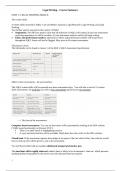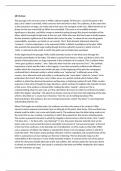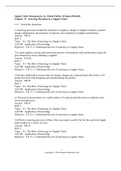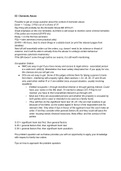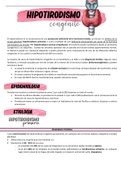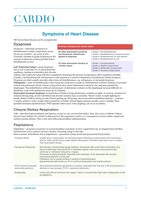Samenvatting
Summary SQE2 Legal Writing Notes
- Vak
- Instelling
These notes include all relevant material tested in the SQE2 Legal Writing exam, information on the assessment criteria and objectives, techniques on how to develop writing skills and mock samples of legal writing in each of the practice areas tested in the SQE2 exam.
[Meer zien]
